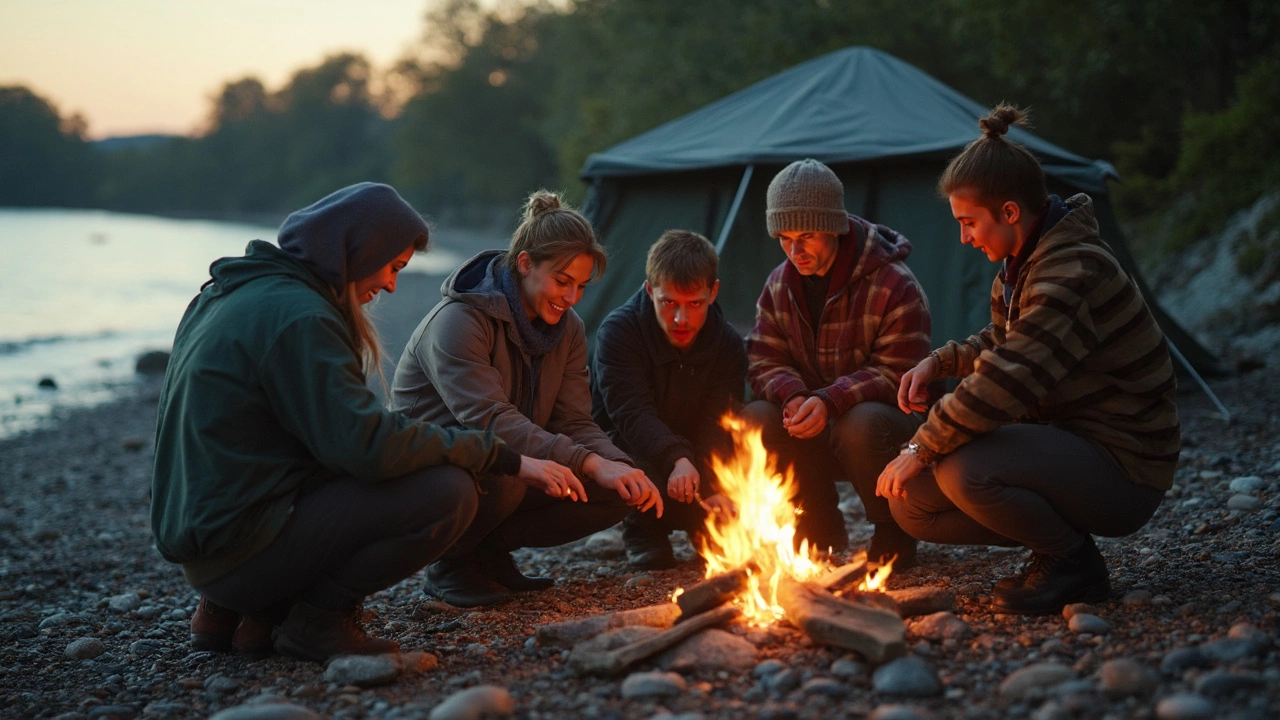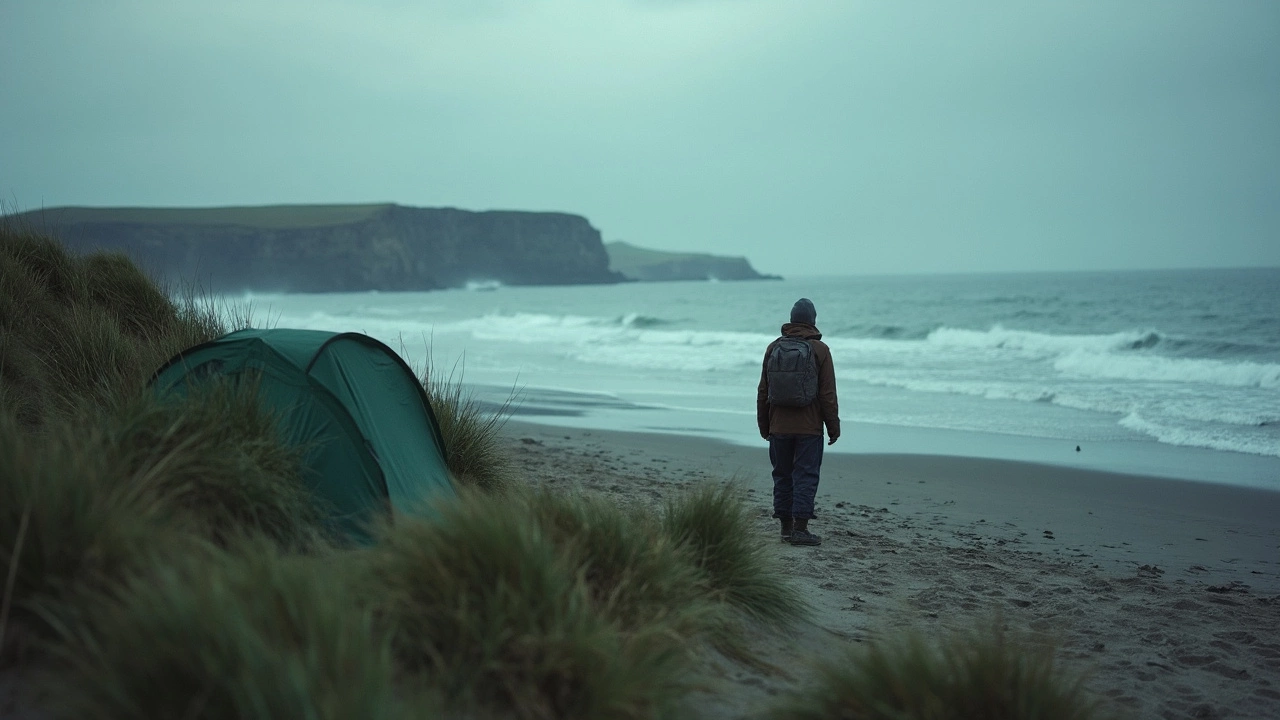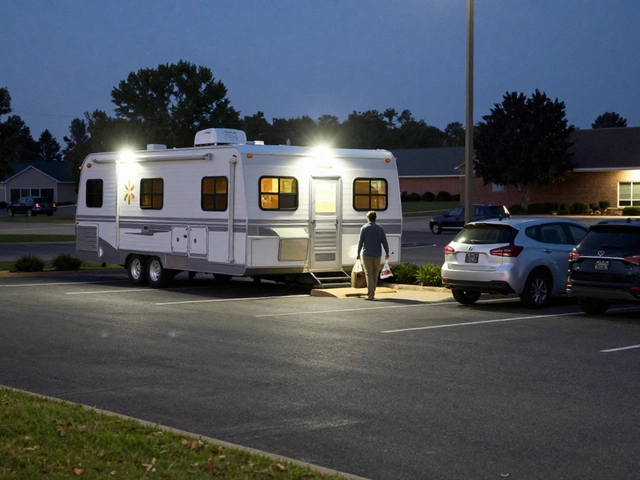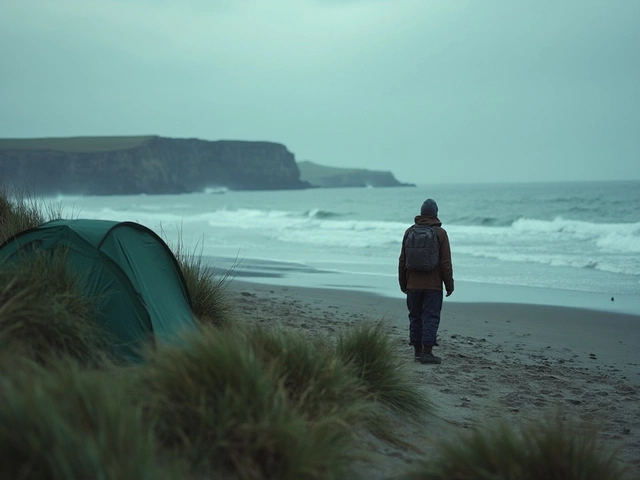If you’ve ever thought about crashing the night on a quiet beach in England, you’re not alone. The idea sounds pretty dreamy—waves lapping at your tent, fresh sea air, basically your own private bit of coastline. But before you grab your tent and hit the sand, it pays to know the ground rules. Most English beaches are not fair game. Unlike Scotland, where the outdoor access laws are way more relaxed, wild camping is almost always illegal in England without landowner permission—including on beaches.
That doesn’t mean people don’t do it. But if you camp on a beach, you’re technically trespassing, unless you’ve got the OK from whoever owns the land. And sometimes, that’s the local council or even the National Trust, who tend to be strict. You might get lucky and fly under the radar—locals usually don’t bother you if you keep things tidy and move early—but there’s always a risk of being woken up by a ranger or police asking you to move on. Fines aren’t common, but don’t count on sympathy if you get caught making a mess or lighting fires.
- What the Law Really Says
- Where Beach Wild Camping Happens (and Why)
- Common Hazards and How to Handle Them
- Smart Tips for Low-Impact, Stealthy Stays
What the Law Really Says
Here’s the deal: wild camping anywhere in England—including beaches—is usually not allowed unless you have clear, written permission from the landowner. Unlike Scotland, where the Outdoor Access Code actually lets people camp almost anywhere that isn’t someone’s private garden, England has a much firmer grip on land rights. Most beaches are either owned by local councils, private landowners, or big organizations like the National Trust.
So, what does the law actually say? By default, every beach is someone’s property. Pitch a tent without permission and you’re technically committing civil trespass—meaning the landowner could ask you to leave, and if you don’t, it gets more complicated. Authorities can also slap you with fines if you cause damage, leave rubbish, or light fires. And if you start a fire or make a mess, you could face criminal charges under the Environmental Protection Act or even arson laws. Not fun.
Here’s what you’re dealing with when it comes to wild camping UK rules on beaches:
- No automatic right to camp: Every single beach is privately or publicly owned. You need explicit permission.
- Civil trespass: Most landowners just ask you to leave, but if you refuse, they can call the police or take legal action.
- National Trust beaches: Their policy is a flat-out ban on wild camping, unless it’s an organized event or special permit (rare).
- Local council-controlled beaches: Often covered by strict byelaws against any form of camping, especially near resorts or tourist areas.
- Nature reserves/Sites of Special Scientific Interest: Wild camping here can lead to big fines, even prosecution, because these spots are extra protected for wildlife.
For a quick view, here’s a rough table on who owns England’s beaches and what their stance is on wild camping:
| Beach Owner/Manager | Likelihood of Permission | Typical Outcomes if Caught |
|---|---|---|
| National Trust | Very unlikely | Moved on, possible fine if trouble caused |
| Local Council | Unlikely | Moved on, maybe reported if repeat or mess left |
| Private Landowner | Varies (rarely yes) | Usually just moved on, rarely police |
| Conservation Area | Never | Fines, prosecution possible |
Bottom line: You need permission, or you’re taking a chance. It doesn’t matter how empty or wild that stretch of sand feels—there’s almost always someone in charge of it. The odd exception might be remote corners where the owners really don’t care, but you’re not covered by law. If you want to do things totally by the book, ask before you camp, or look for beaches with organised overnight stays (usually more basic than proper campgrounds, but at least legal).
Where Beach Wild Camping Happens (and Why)
You don’t see people pitching up on Brighton Beach or Bournemouth Pier. Most wild camping on beaches in England happens on the ragged, quieter bits of coast, way outside the holiday hotspots. The real action is in places like Northumberland, bits of Norfolk, hidden coves down in Cornwall, and the wild stretches of the South West Coast Path. These places have fewer crowds, less nightlife, and most importantly: people tend to mind their own business.
Why risk it at all? For a start, campsites by the sea are packed or booked months ahead during summer. Wild campers are looking for a different vibe—solitude, space to watch the stars, and just escape noise. And honestly, the best sunrise you’ll ever see is from a sleeping bag, listening to gulls and waves and not much else.
If you’re after that kind of night, it helps to know where it’s quietly tolerated. Wild camping UK fans swap tips about a couple of very remote beaches accessible only by hiking in, where locals and rangers are less fussy, as long as you pack up early and leave no trace. For example, some people have managed to camp at the far ends of Druridge Bay in Northumberland without hassle. The same goes for hidden Cornish spots like Prussia Cove, where there’s no easy car access—so only people willing to leg it with all their kit even try.
But don’t trust random internet lists. What was fine last year sometimes sparks complaints today, especially if too many tents pop up in one spot. Always scope the place out beforehand. Is there farm fencing or clear 'no camping' signs? Forget it. Look for long, empty strips of sand, away from roads, far from houses, and definitely not next to active car parks. Discretion matters; that’s why wild campers usually prefer beaches with tricky paths or dunes for cover.

Common Hazards and How to Handle Them
Wild camping on England’s beaches sounds simple, but it’s packed with hidden risks you might not expect. Tides, authorities, and local wildlife can all mess up your night if you’re not prepared. Here’s the stuff that catches out even smart campers—and how to dodge trouble.
wild camping UK folks almost always overlook one big thing: tides. English beaches can see massive tidal swings, especially on the east coast. In places like Morecambe Bay, tides rush in faster than you can pack your tent, which is actually dangerous—lives are lost here every year. Always check the tide tables for your exact area, and camp well above the high tide line. Don’t trust lines of seaweed; storms can leave that much higher up.
| Hazard | How Often It Happens | How To Avoid |
|---|---|---|
| High Tides | Common on all coasts | Check tide times; set up above high water mark |
| Police or Ranger Warnings | Occasional, especially in busy spots | Stay discreet, leave no trace, avoid crowds |
| Sand Erosion & Soft Ground | Depends on recent weather | Test ground, avoid pitching on steep dunes |
| Wind Exposure | Frequent, especially on open beaches | Use low tents, peg tightly, avoid cliff edges |
| Sea Spray & Salt Damage | Regular, especially overnight | Use a flysheet, pack gear away, wipe everything down next morning |
| Nosy Wildlife | Rats, foxes in some areas | Bag up food, don’t leave scraps |
| Angry Locals | Rare but possible | Be friendly, respect privacy, move on if asked |
On the people front, you’ll mostly get ignored if you’re quiet and tidy, but some night fishermen or early dog walkers might ask why you’re there. Worst-case, a coastal ranger could pop by. If you’re polite, pack up quickly, and don’t argue, they almost always just ask you to leave—fines are super rare, but they do happen, especially if you’ve lit a fire or left rubbish.
Wind is another biggie. English shores are windy even in summer, and storms brew up quick. Bring a sturdy, low-profile tent and strong pegs. If you’ve ever tried to anchor down in blowing sand, you know how tough it gets. Skip old-fashioned plastic pegs—sand specialist pegs or just heavy rocks work better.
Don’t forget, some beaches have rules up for a reason: cliffs crumble, mudflats trap the unwary, and water can be colder than you’d expect, even in July. Bring a basic first-aid kit, just in case, and always let someone know your spot, just like you would if you were hiking in the hills.
Smart Tips for Low-Impact, Stealthy Stays
Want to camp on the beach in England without getting unwanted attention or leaving a trace? Here’s how the regulars do it and avoid hassles along the way.
- Wild camping UK style means keeping a low profile. Go for small, dark-coloured tents that blend into the background. Bright colours stick out like a sore thumb, especially from far off or early in the morning when council officers do their walkarounds.
- Arrive late, leave early. Don’t set up until the coast is pretty much clear—sometimes I don’t pitch before 9 pm—and pack up as soon as the sun starts coming up. The less time you’re visible, the better. This trick works even on some busy coastlines where the day crowd thins out after sunset.
- Check tides—never guess. UK beaches have some of the biggest tidal shifts in Europe, especially on the west coast and around Cornwall. Lay down the tent, mark the high tide line with a stick or seaweed, and double-check tide times online before snoozing. Getting woken by water flooding your bivvy is a horrible story, not a fun one.
- Stay quiet, skip the campfire, and use a small camping stove only if you’re sure it won’t leave a burn. Charcoal marks and scorched sand are the stuff that gets wild campers booted for good and can lead to more bans. Bring snacks that don’t need cooking if you want to be extra careful.
- Leave nothing—seriously, nothing. Take away every scrap of rubbish, rake over sand where you’ve camped, and don’t bury waste. I usually go as far as doing a quick once-over for any litter left by others, just to keep things sweet with locals.
Finally, go solo or in pairs. Big groups attract unwanted attention, even if you’re behaving. Keep it chill, and you’re way more likely to have a night under the stars with no drama and zero evidence you were ever there.






